Natural Weed Killers For Gardens (That Actually Work)
Keeping your garden free of pesky weeds without harming the environment may seem impossible, but with these natural weed killers it is not. We'll show you how you can get ahead of the weeds and have peace of mind knowing that these solutions are totally organic.
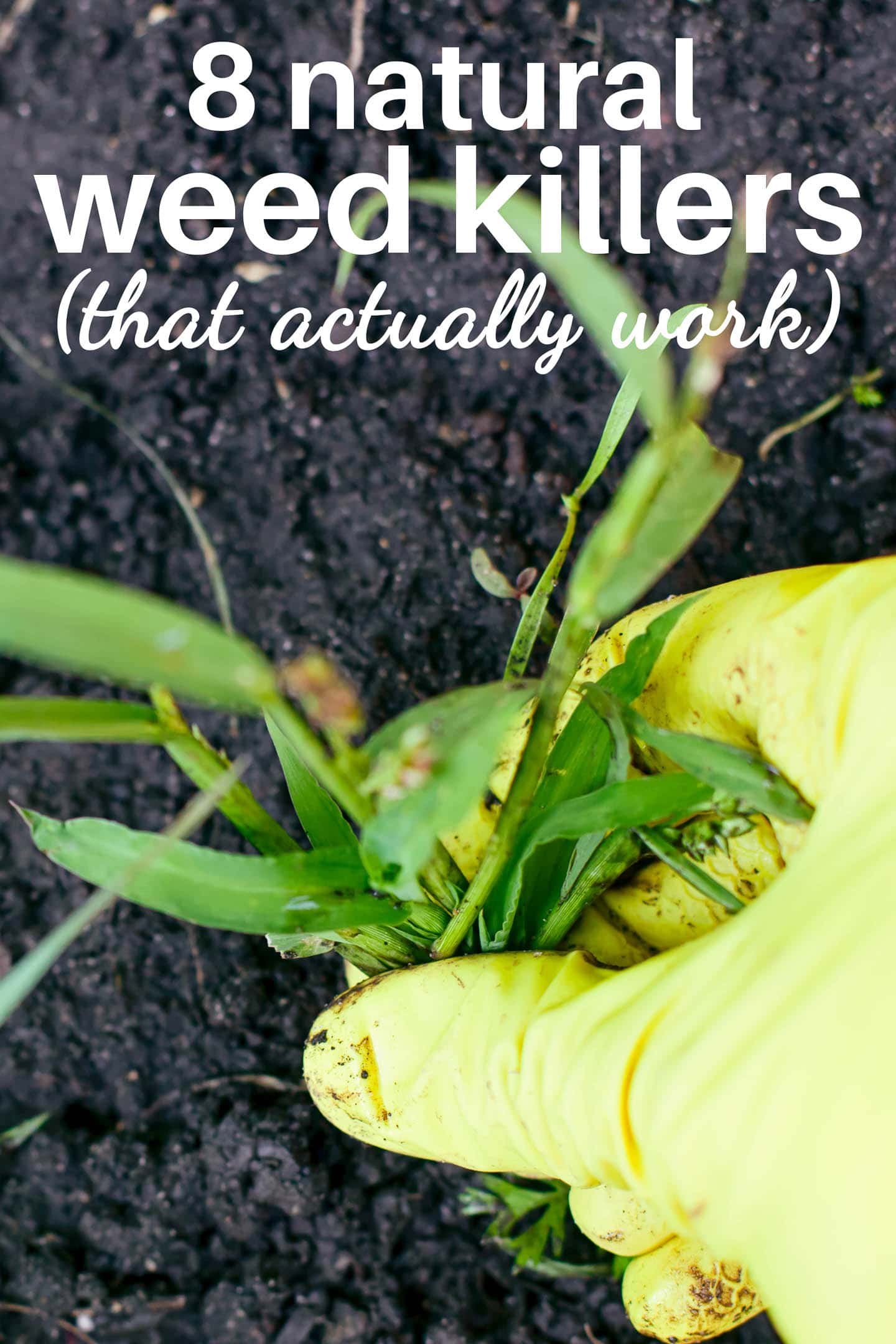
Gardening is an immensely fulfilling activity, but one of my least favorite tasks is dealing with weeds.
My yard backs onto a ravine, which provides a beautiful, serene backdrop for my garden.
But also means a lot of weeds make their way into my yard.
While I could just use a herbicide to get rid of them, I don't like the idea of adding toxic chemicals to the environment.
Especially when the runoff could end up in the stream behind my house.
Which is why I use these natural weed killers instead. They help deal wit weed problems without the risks.
1 | Remove by hand
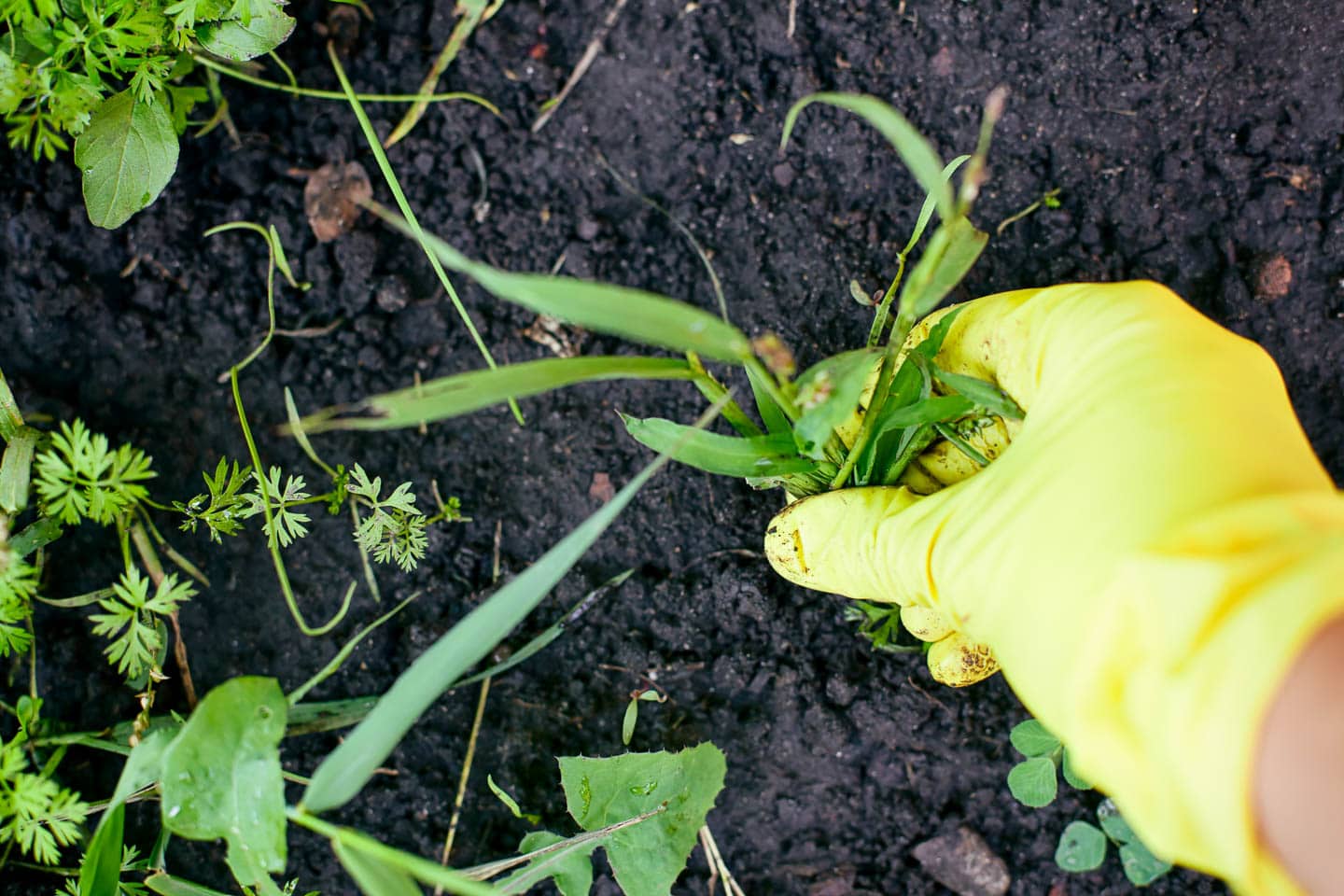
When I'm weeding among the plants in my flower beds, removing them by hand is always my first choice.
That way I don't have to worry about them accidentally getting sprayed with something that isn't good for their health.
And it works for all kinds of weeds, doesn't affect the soil, and you have a better chance of getting the whole weed including the roots.
The trick to making weeding by hand easier is to get a good pair of gardening gloves, do it when the soil is damp (after a rain), and use the appropriate weeding tools. (Stay tuned for a list of my favorites.)
2 | Homemade natural weed killer
If you would rather use a spray, this homemade natural weed killer is easy to put together with ingredients you already have in your kitchen.
To make it, combine the following ingredients in a large pitcher or pail:
- 1 gallon white vinegar
- 1 cup salt
- 1 tablespoon liquid dish soap
Pour the mixture into a spray bottle, then spray it on the leaves and stems of the weeds you want to kill.
The vinegar and salt will dry out the plants while the soap keeps the mixture from sliding off the plant.
For the best results, do this at the sunniest time of the day when you aren't expecting rain for the next couple of days.
While this treatment kills the surface weeds pretty quickly, it may take a few treatments before the roots die off. So you may need to repeat the treatment a few times.
Also, do not get any of the mixture on plants that you want to keep. Otherwise, they will get damaged, too.
3 | Horticultural vinegar
Another natural weed killing option is horticultural vinegar.
It is a concentrated vinegar that can be sprayed on weeds without requiring mixing.
Similar to the mixture above, it does not discriminate on which plants it will kill, so be careful where the spray goes. (And it's not a good idea to use it when it's windy.)
Horticultural vinegar can also prevent things from growing if too much of it gets in the soil. Which is why I usually use it for the patio, sidewalk and driveway where I don't want anything growing.
4 | Corn gluten meal
Corn gluten meal is another natural weed killer that works a little differently than the others. (This is NOT the same thing as the corn meal you have in your kitchen.)
It's a by-product of wet milling corn that acts as a pre-emergent herbicide. Which means it prevents seeds from growing but doesn't affect already-growing plants (or weeds).
So it can be spread everywhere in your yard and won't harm the plants or your grass (as long as you haven't planted any seeds). Which makes it one of the best natural weed killers for your lawn and in your garden.
To be effective, corn gluten meal needs to be put out just before the weeds start to germinate. (A soil thermometer pushed 4 inches into the soil should read 50℉.)
In most locations, this is early in the spring. And again about a month later to stop crab grass. If you live in a place with warmer winters (like I do in South Carolina), you may also need an application in the fall.
It should be lightly watered soon after it is spread. Then left dry for a few days. So you don't want to put it down if the weather forecast is calling for a lot of rain.
Because weed seeds can live for quite a while and they don't all germinate at the same time, you will likely need a couple of years of applications to be weed free.
This natural treatment is more expensive than chemical pre-emergent herbicides, but it is totally non-toxic to the soil, plants or animals. So I think it is worth it.
As a bonus, it also has 10% nitrogen, so it will help lawns turn green and promote leaf growth in your garden. (Of course, if weeds are already growing, they will benefit from the fertilizer, too.)
For the most effective kind, look for corn gluten meal that has 60% protein (or higher). Some types with lower protein are available for livestock feed and aren't as good at preventing weeds.
You can read more about corn gluten meal on the Iowa State University website.
5 | Boiling water
When applied straight onto weeds, boiling water can be an effective weed killer, especially for broadleaf weeds.
Simply boil water and take it straight out to the garden before dumping it onto the weeds.
To kill off more of the roots, add ¼ cup of salt to 4 cups of boiling water. This will help to dry them out.
Be sure to wear long pants and closed toe shoes and be careful about pouring, so you don't burn yourself.
Since it is very hard to control where the water ends up, this should only be used in areas that are not close to any plants you want to keep. Another good option for driveways, sidewalks and patios.
6 | Flame thrower
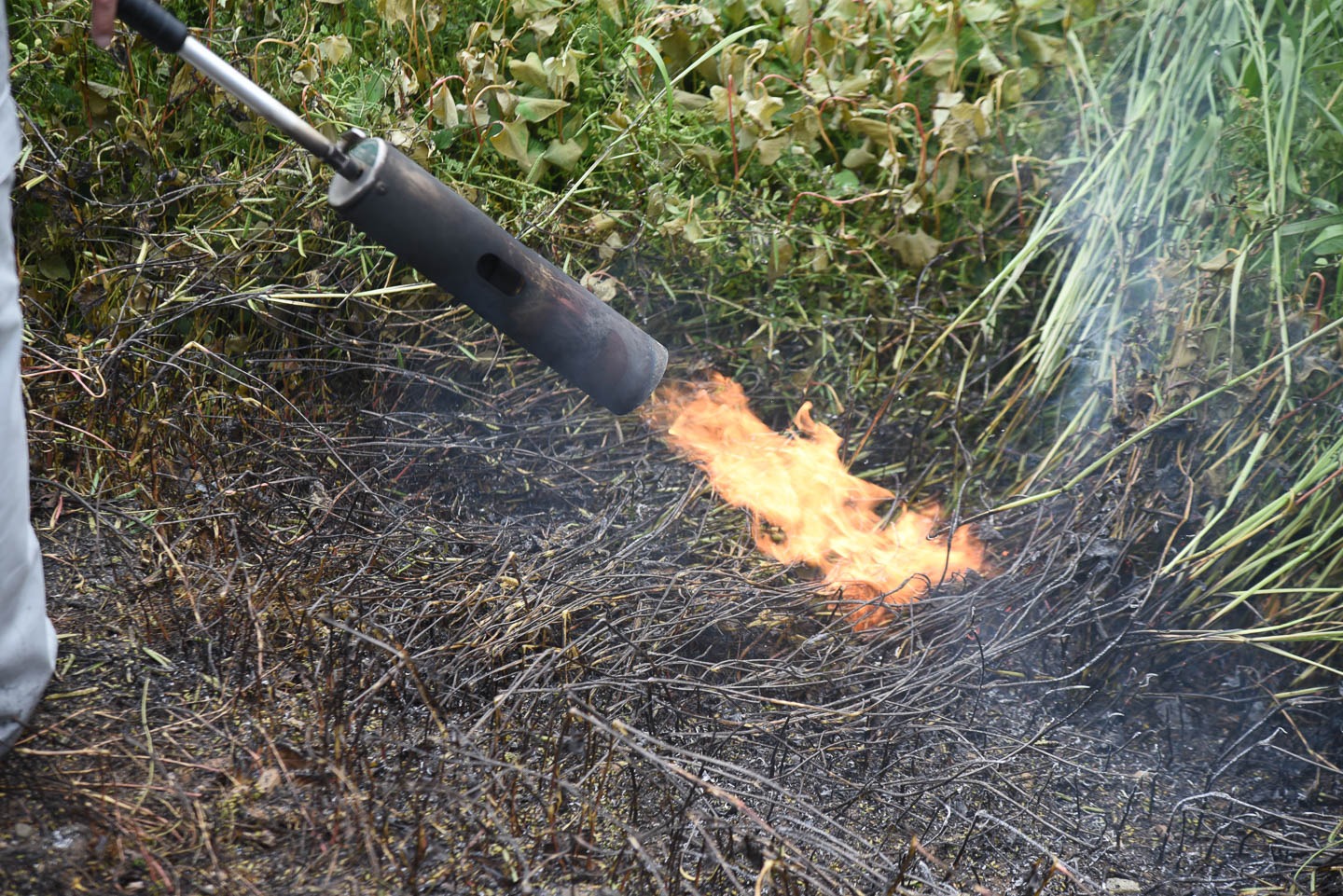
Another non-chemical approach to killing weeds is to use a flame-thrower.
Yes, it's a real thing!
It hooks up to a propane tank and shoots fire at the weeds. The heat causes the cells in the plants to burst which kills it.
Obviously, this works best in areas that don't have plants you are trying to grow.
And you need to be careful that there aren't too many dried leaves and twigs around that can start a fire.
As with many of the other natural weed killers, this treatment doesn't always kill the roots of the weed with the first application. So you may need to repeat it a couple of times for complete eradication.
7 | Mulch
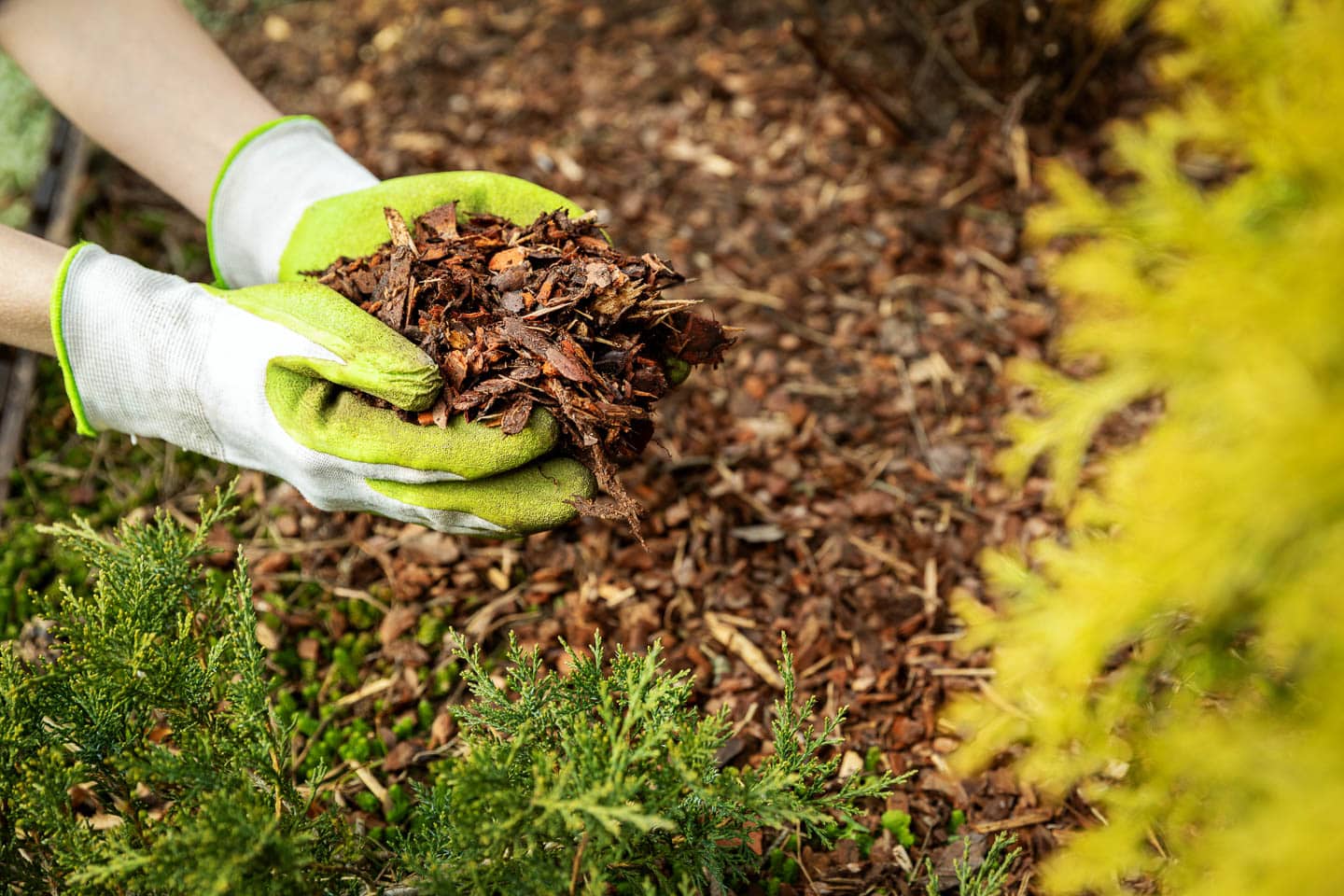
Spreading mulch around your plants is a great way to prevent weeds from growing up between them.
It prevents sunlight from getting to the weed seeds, stopping them before they become a problem.
Spread three to four inches of mulch around your garden after your plants have started to sprout..
Putting down a layer of landscape fabric before spreading the mulch adds an extra layer of protection.
Be cautious to keep the mulch away from the plant stems since it can cause them to rot.
You may get some weeds that grow on top of your mulch from flying or dropped seeds. Fortunately, they can be pulled easily by hand.
8 | Black garbage bags
If you are planning a new garden bed and aren't in a hurry to get it planted, then black garbage bags are your best weed killing option.
Open them all the way up and put them down over the soil.
Then hold down the edges with rocks or bricks.
Let it stay like this for a few months during warm weather.
This will heat the soil and kill off any weeds as well as most of the seeds.
When you're done, the garden will be ready for your plants.
Frequently asked questions
What are natural weed killers?
Natural weed killers get rid of (or prevent) weeds from growing using non-toxic methods that won't harm the environment, soil or animals.
What is the recipe for a natural weed killer?
The easiest homemade weed killer is to mix 1 gallon vinegar with 1 cup salt and 1 Tablespoon dish soap. Then spray on the leaves and stems of the weeds during the sunniest part of the day. The vinegar and salt will dry out the plant while the dish soap prevents the mixture from running off.
Why do you need to prevent weeds?
Weeds take nutrients and water from the soil, preventing your plants from having access to them. They can also be invasive and take over whole sections of your garden (or lawn) choking out the plants that you want to grow there.
Other gardening tips you might like
- Tips for creating a low maintenance garden
- How to control garden pests naturally
- How to get rid of slugs naturally
Have comments or other suggestions for natural weed killers? Tell us in the section below.
This post was originally published on June 12, 2021 but was updated with new content on November 23, 2024.

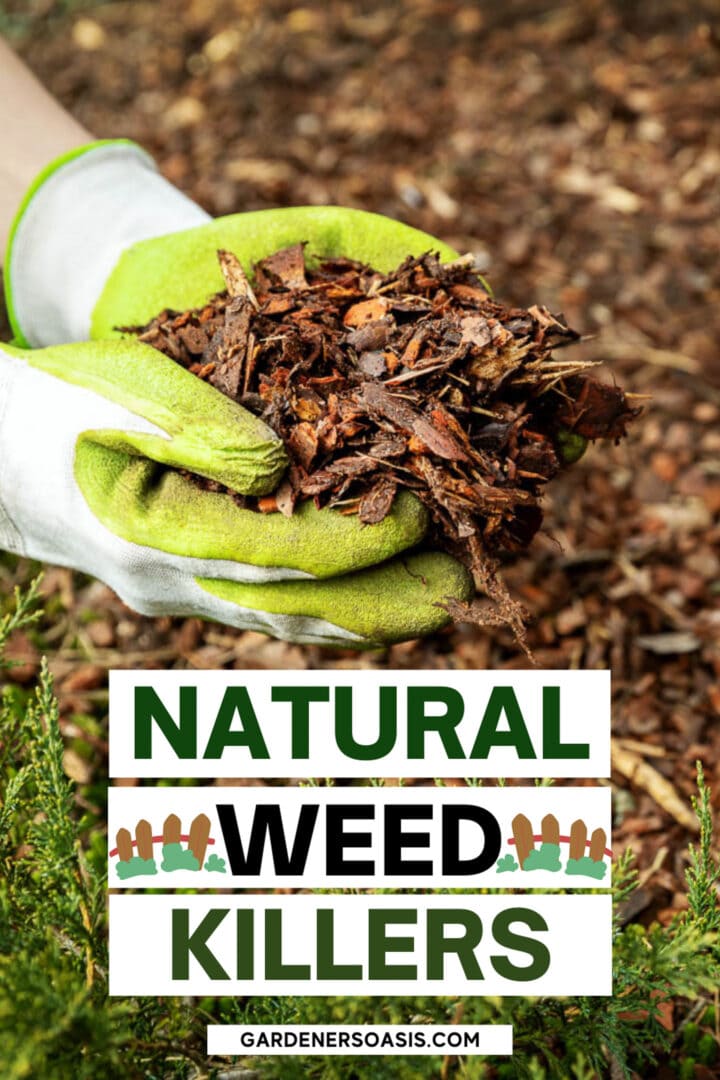
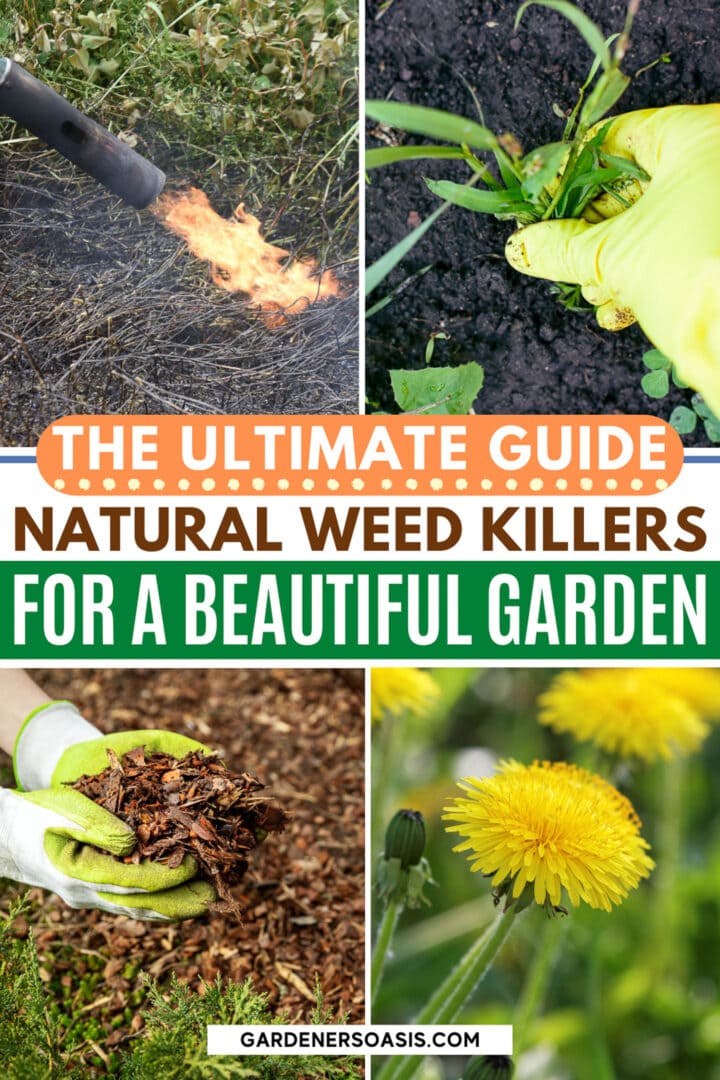
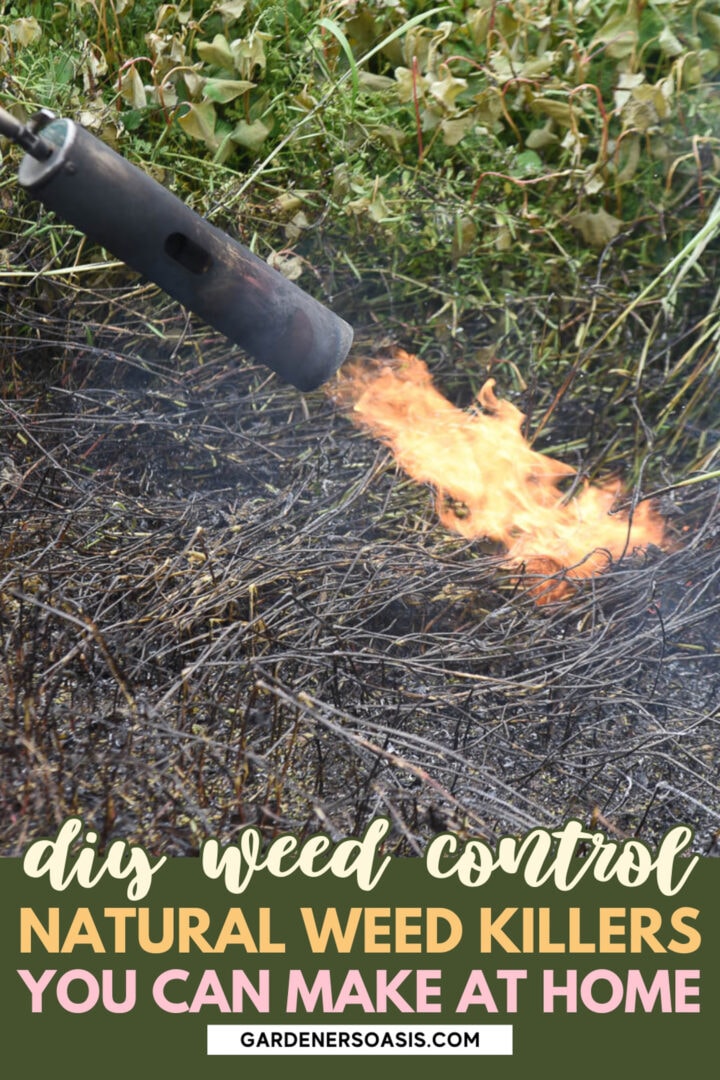
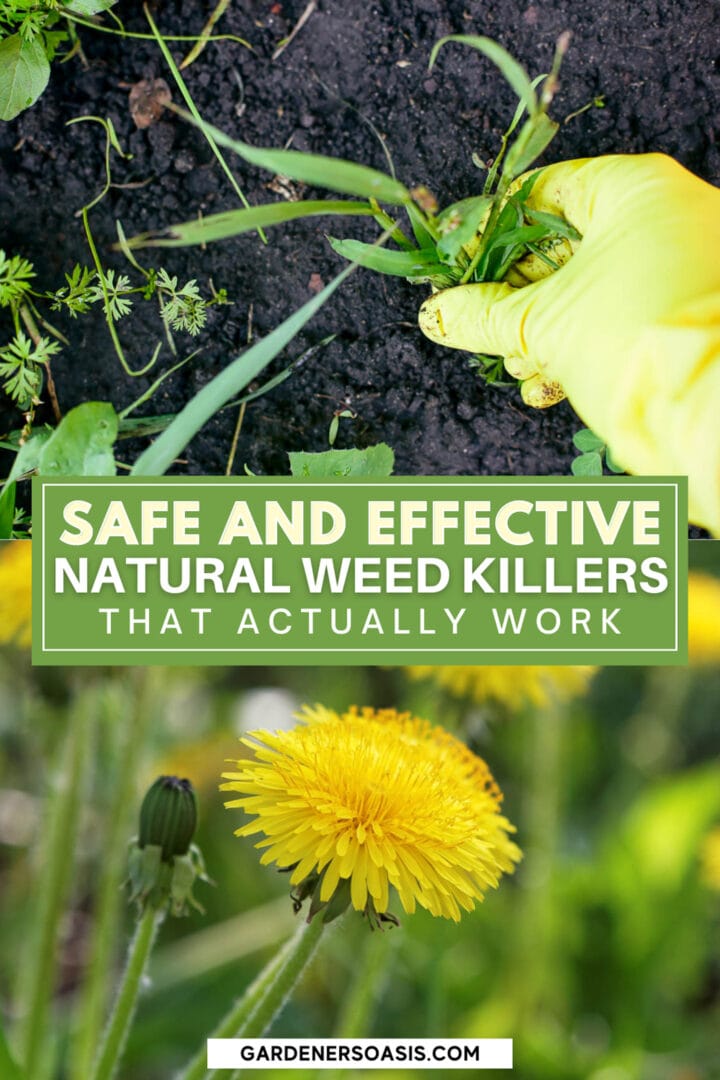
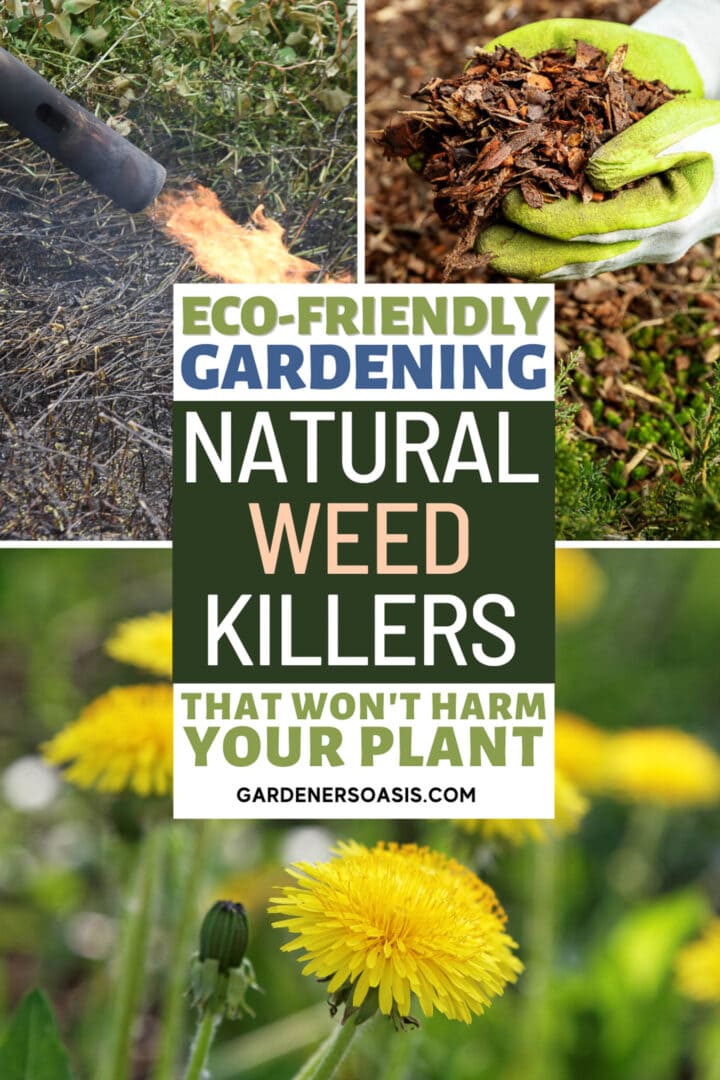
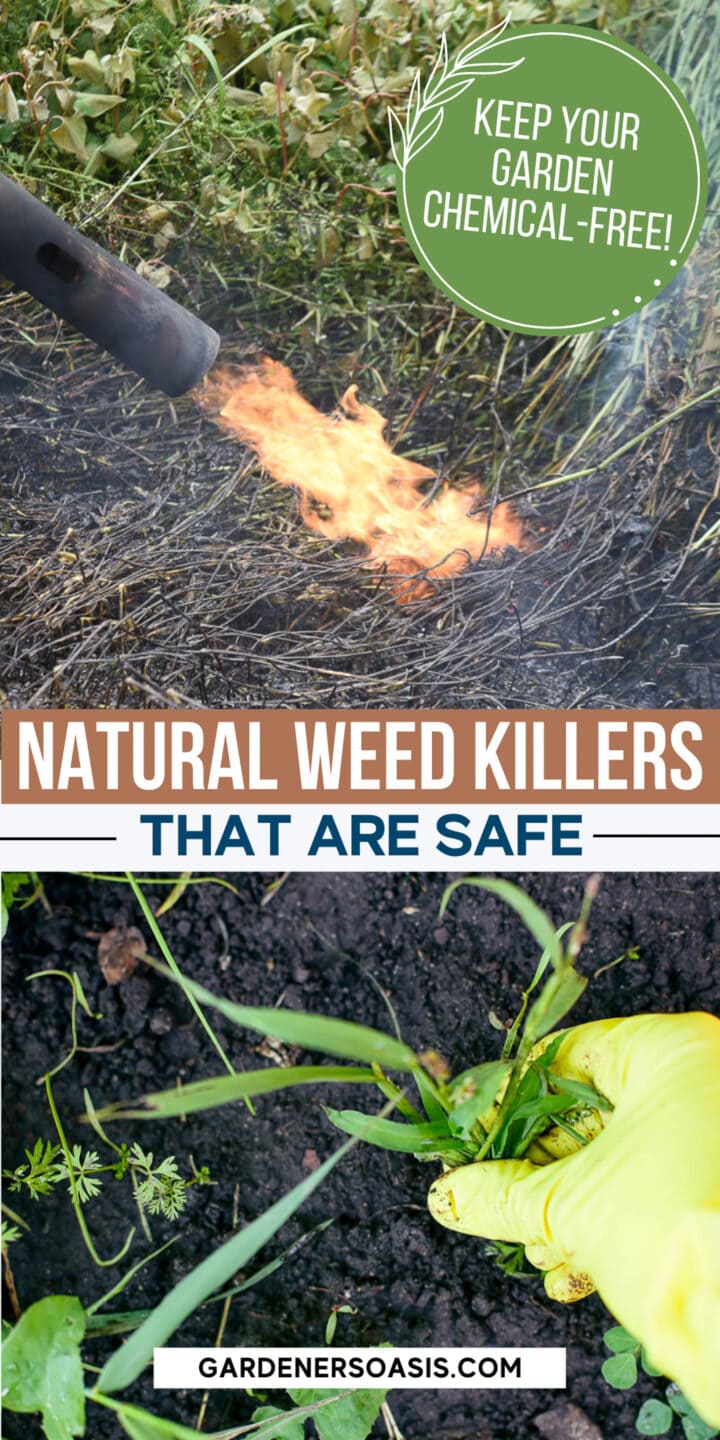
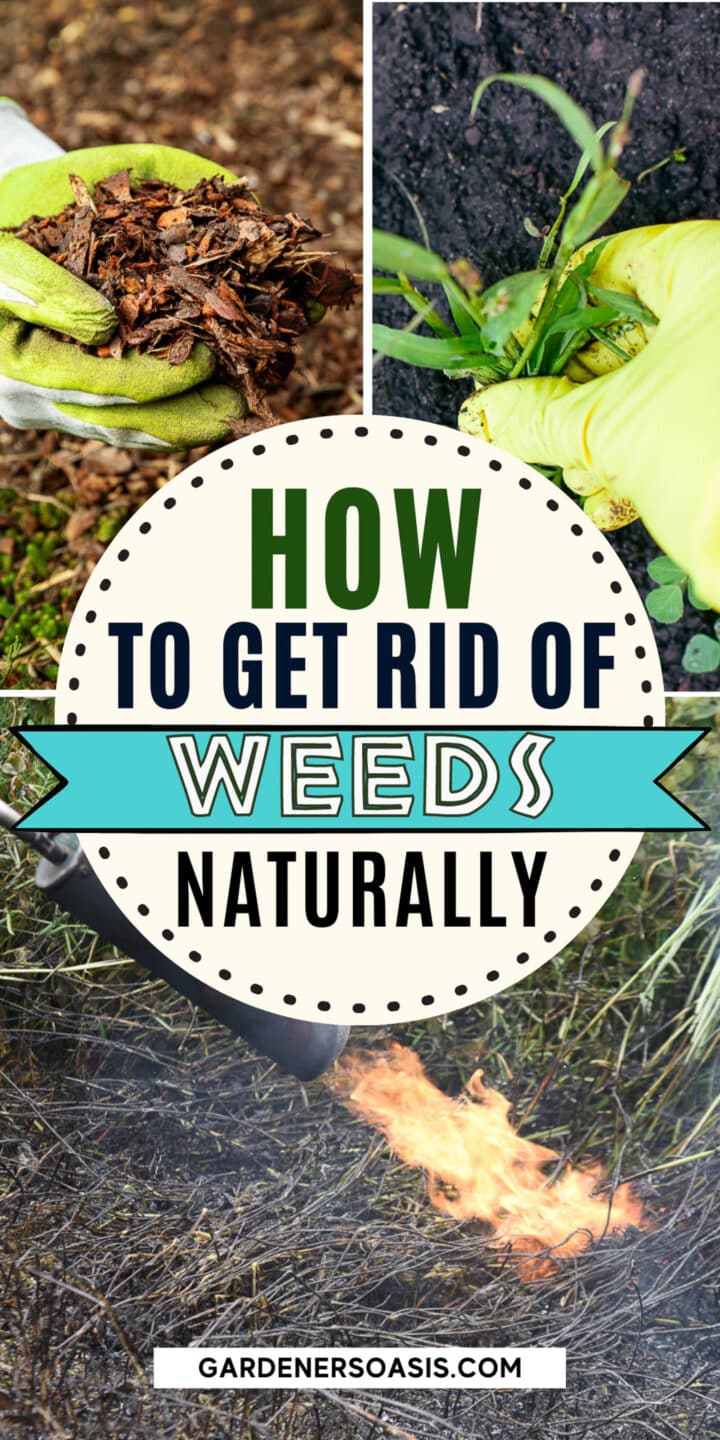
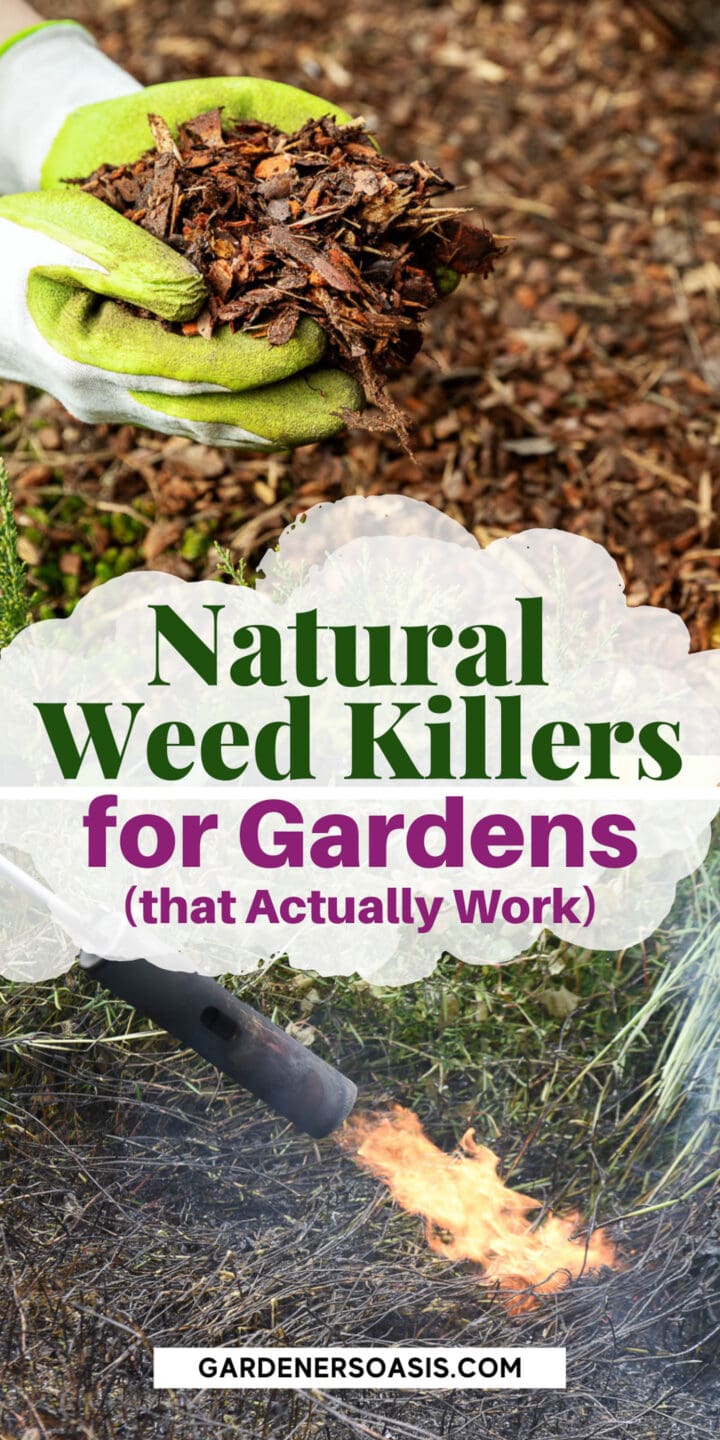
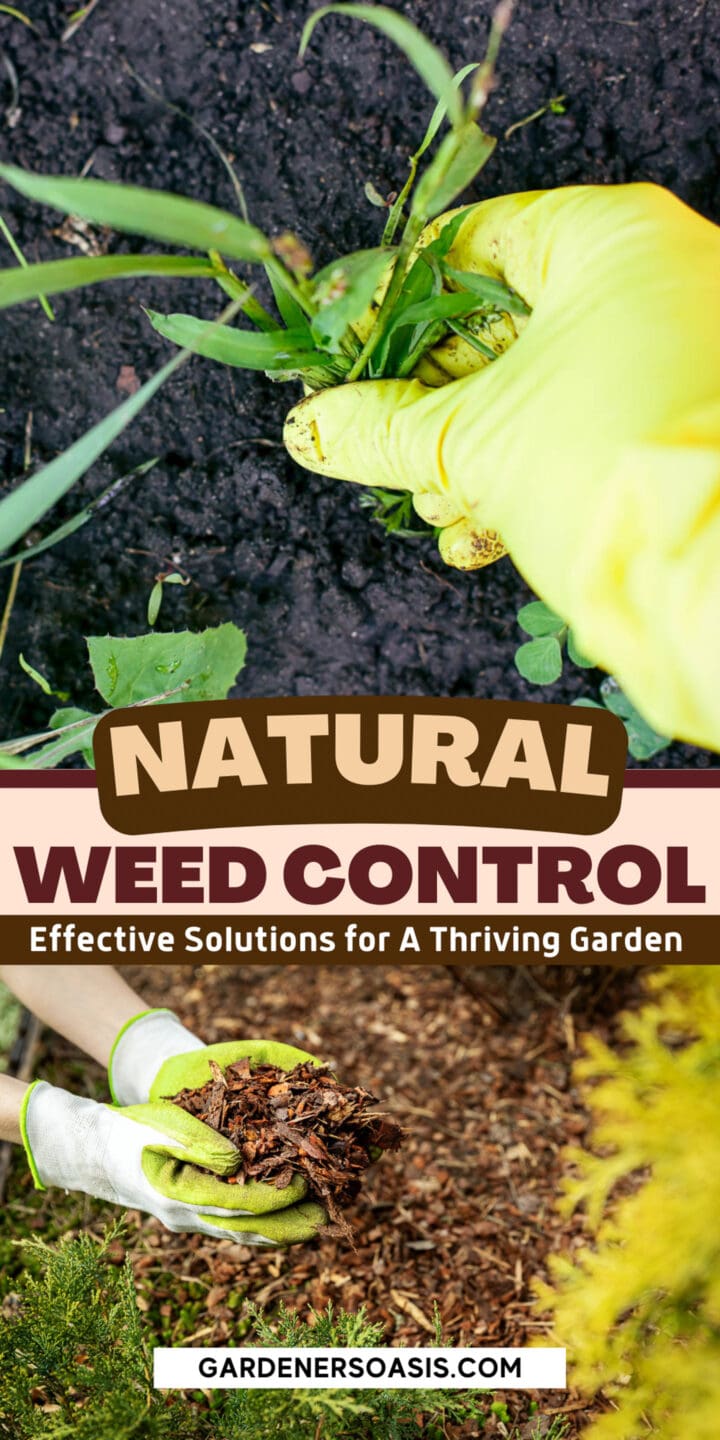
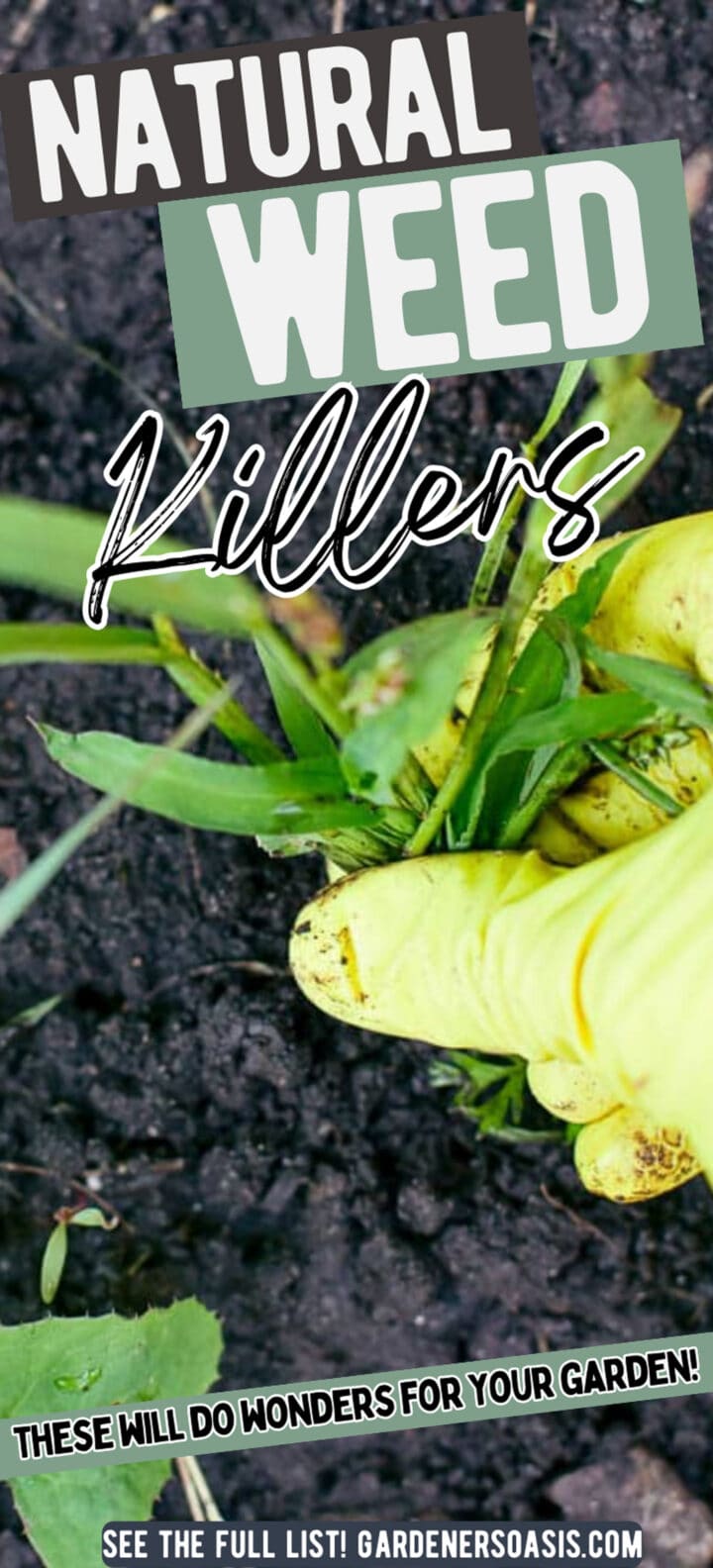
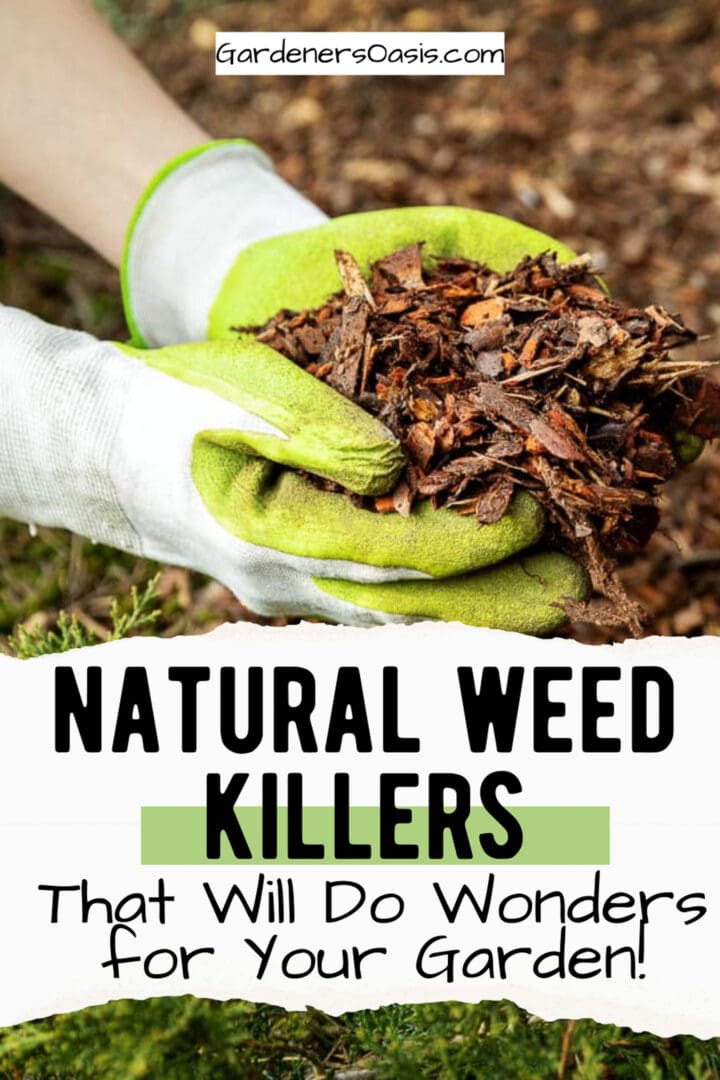
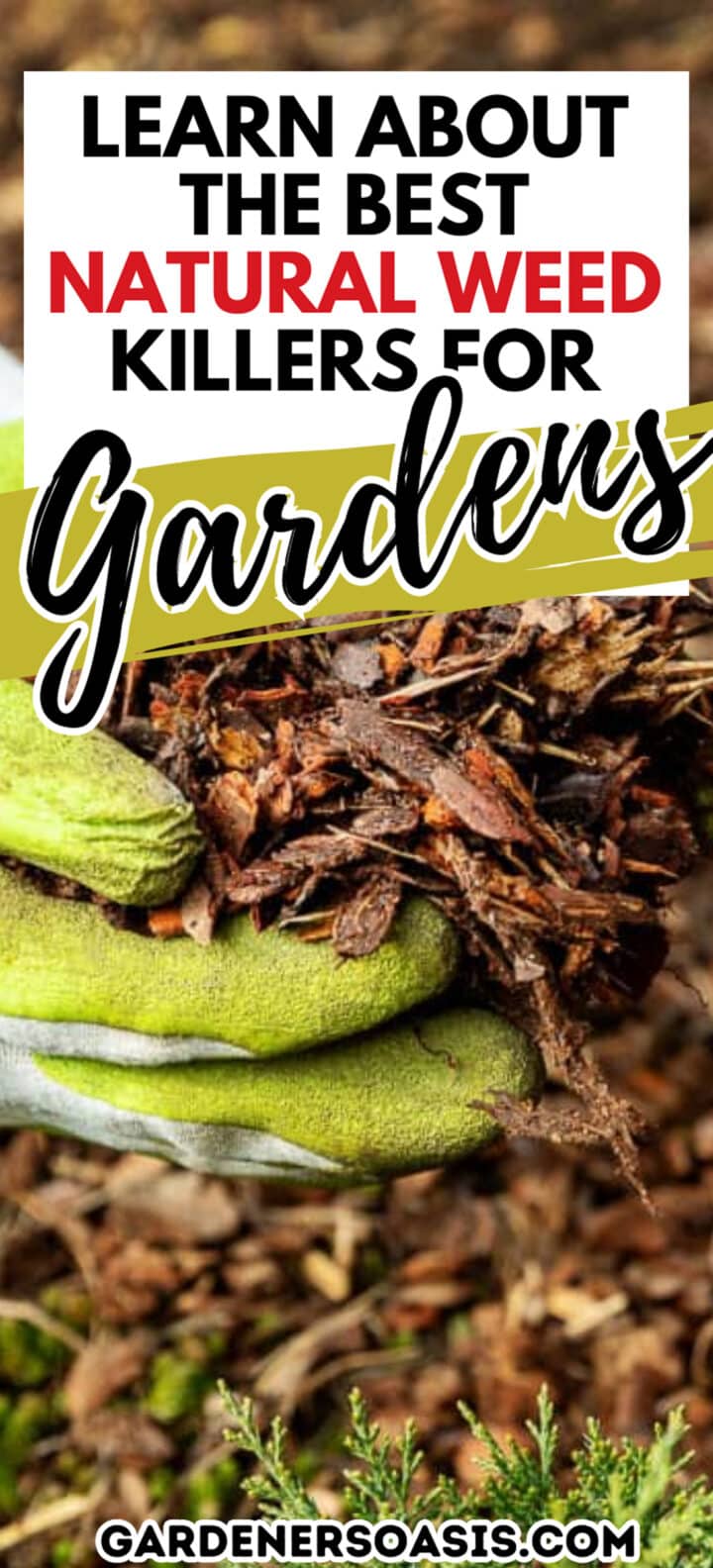
Hi Wanda,
I always enjoy your posts
A suggestion. Rather than black plastic to start a garden, I put down newspapers and cardboard (from old boxes) sometime during the summer or early fall. I cover this with 3 inches of shredded wood mulch. The area is ready for planting in the spring and the bonus? It’s weed and grass free, and already mulched.
Regards
Linda
Thanks for the suggestion, Linda. That sounds like it works quite well!
Wanda,
Just realize with table salt, it will sterilize the soil, so you wouldn’t want to use it where you will want to plant in the future. Although, I am not sure how much it actually takes for that to happen. I have only used it on the blackberries. (I have tried to dig them out but the roots go too deep and they just come back.) I cut it down and then pour the salt at the crown and follow with a vinegar chaser. They have not come back.
Thanks for all the great info you send out,
Carol
That’s a good point about the soil sterilization, Carol. I used to have wild blackberries growing in my yard so I know how hard they are to get rid of. I didn’t try the salt and vinegar option on them. Good to know it works!